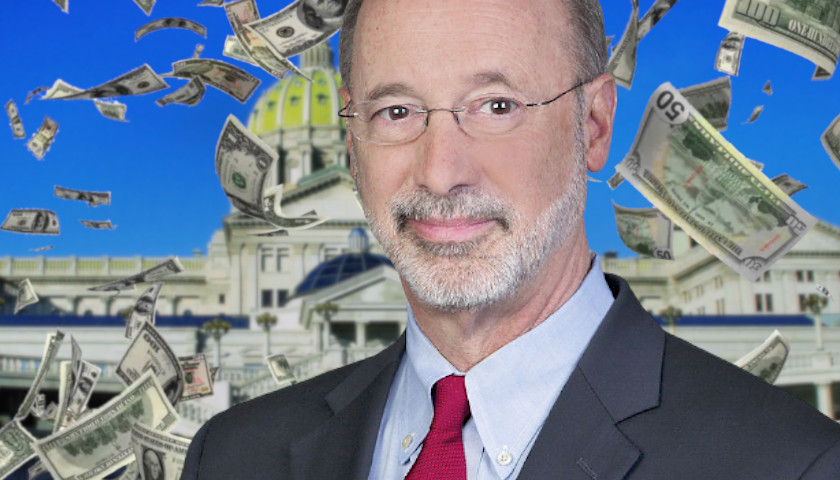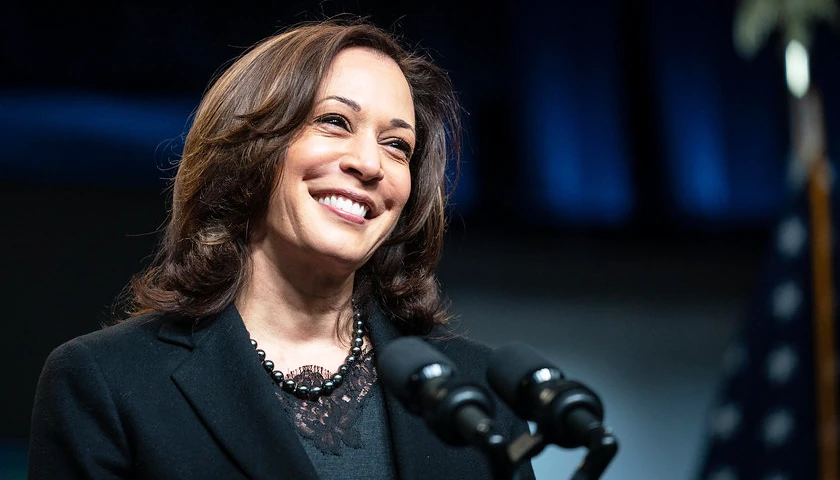by Victor Skinner
Pennsylvania Gov. Tom Wolf is again urging the Republican-controlled General Assembly to increase the commonwealth’s minimum wage, claiming anything under $15 an hour isn’t enough to support a family.
“Pennsylvania’s food service, retail and social services workers have deserved a minimum wage hike for many years, but today the need is even more urgent,” Wolf said this week. “Millions of Pennsylvanians – many of them frontline workers we called heroes in the early days of the pandemic – are struggling to support their families on hourly wages under $15.
“The COVID-19 pandemic has changed the global economy, and we see that reflected in a very reasonable reluctance of workers to take low-wage jobs in the midst of rising inflation. Parents with young children literally cannot afford to work these jobs if the cost of child care eclipses their paycheck. I’m urging the General Assembly to pass legislation that increases Pennsylvania’s minimum wage to $12 an hour and creates a path to $15.
Wolf pointed to House Bill 345 and Senate Bill 12, which would implement a $12 hourly minimum wage with plans to increase to $15 over time, as well as annual raises tied to the Consumer Price Index.
Sen. Christine Tartaglione, D-Philadelphia, sponsored SB 12 to ensure residents earn a “living wage” and align the state with more than two dozen others set to raise the minimum wage next year. In addition to the $12 minimum wage, SB 12 would also eliminate the tipped wage and allow local municipalities to implement higher minimum wages.
“The Pennsylvania legislature last increased the minimum wage in 2006 when they passed my legislation, Senate Bill 1090,” she said. “Since then our legislature has failed to raise the minimum wage and provide a livable wage to our lowest earners. This inaction is not just a failure in policy, but a failure in humanity and decency. Pennsylvanians deserve a living wage. We need to join the 25 states that will raise their minimum wage in 2022 and provide a livable wage to our commonwealth.”
A report released last spring by the Independent Fiscal Office showed more than 1 million Pennsylvanians would get a raise from a $12 minimum wage, while 1.8 million would benefit from a $15 minimum, mostly in food service, retail and educational service industries. About 119,000 tipped workers would be affected by a $12 minimum wage, according to the report.
The report shows Pennsylvania’s $7.25 an hour minimum wage is the lowest in the region, following West Virginia’s $8.75, Ohio’s $8.80, Delaware’s $9.25, Maryland’s $11.75, New Jersey’s $12 and New York’s $12.50 starting wage.
Gene Barr, president of the Pennsylvania Chamber of Business and Industry, told City & State he believes “punitive blanket mandates” such as a minimum wage hike could be devastating for many in the hospitality industry, which already is reeling from shutdowns and mandates tied to the COVID-19 pandemic.
“While some workers would certainly benefit from increasing the minimum wage, others would be negatively impacted, many of whom may be from the very low-income families we want to help,” Barr said. “The current proposal on the table in Harrisburg would be especially damaging for the restaurant industry, which employs over half of the minimum wage workers in Pennsylvania.
“Restaurants that have survived the pandemic so far may be barely hanging on following the state’s business shutdown orders and capacity restrictions,” he said.
Republicans in the Pennsylvania Senate, meanwhile, are promoting their own plan to increase the minimum wage, though at a slower pace than bills sponsored by Democrats.
Sen. Dan Laughlin, R-Erie, introduced Senate Bill 672 this spring to raise the minimum wage to $10 an hour, with future increases tied to the Consumer Price Index.
“I think (linking increases to inflation) is more of a long-term solution for the folks at the minimum wage status in Pennsylvania,” he told City & State. “It will continue to be adjusted upward and in a more business-friendly fashion than these big jumps every 10 to 12 years.”
– – –
Victor Skinner is a contributor to The Center Square.





